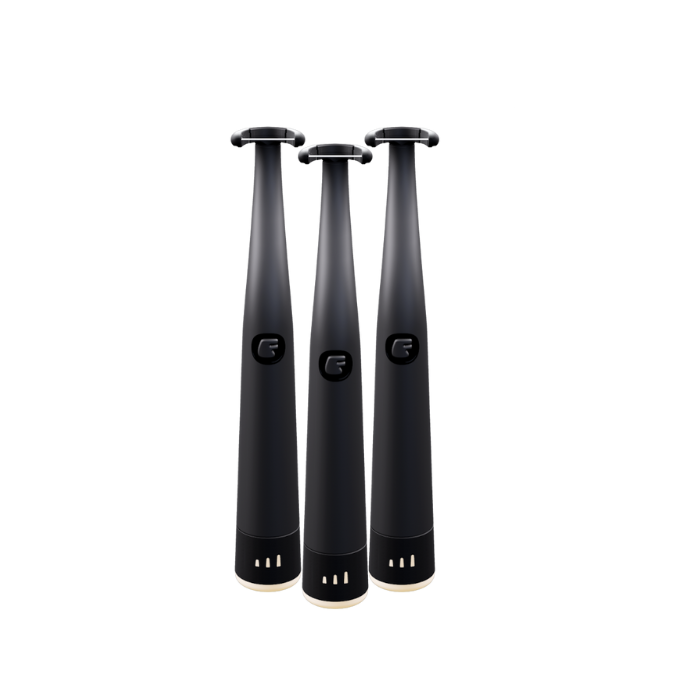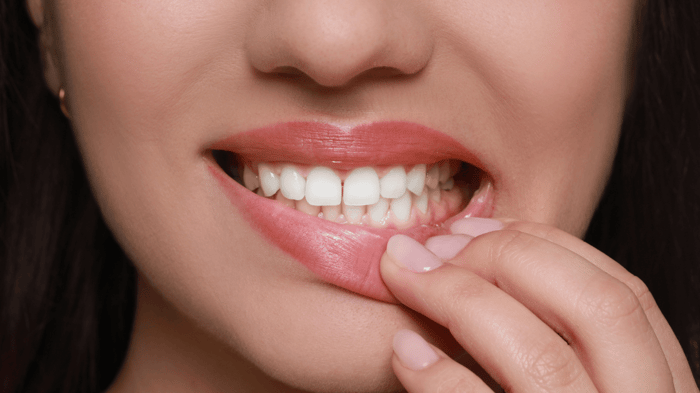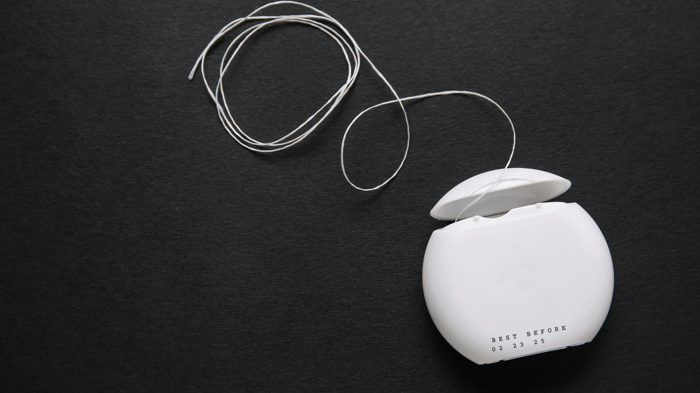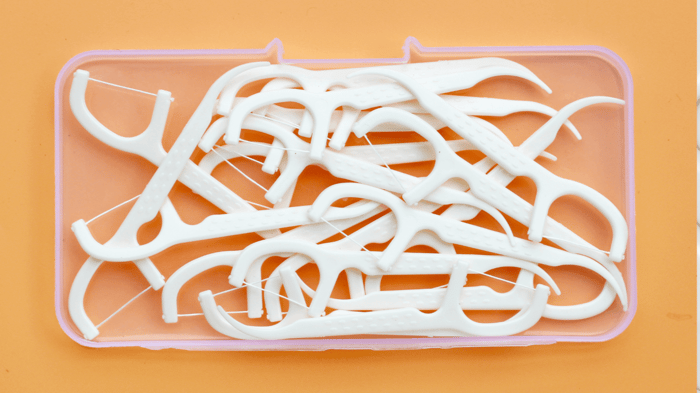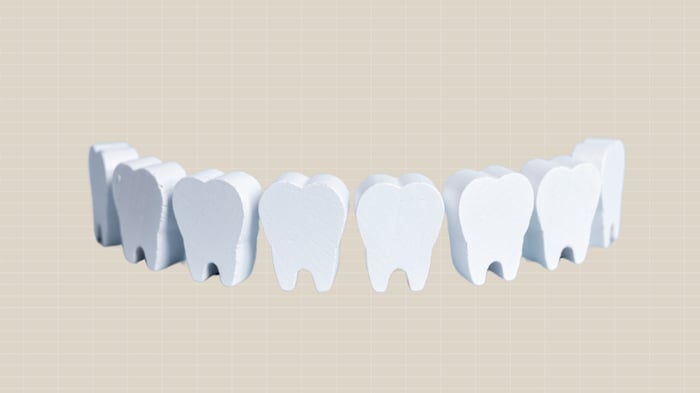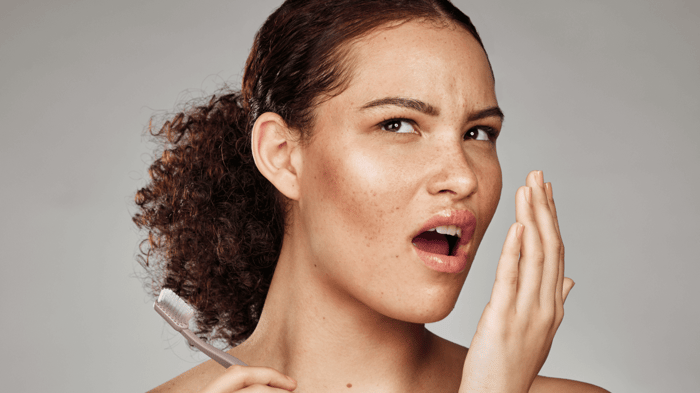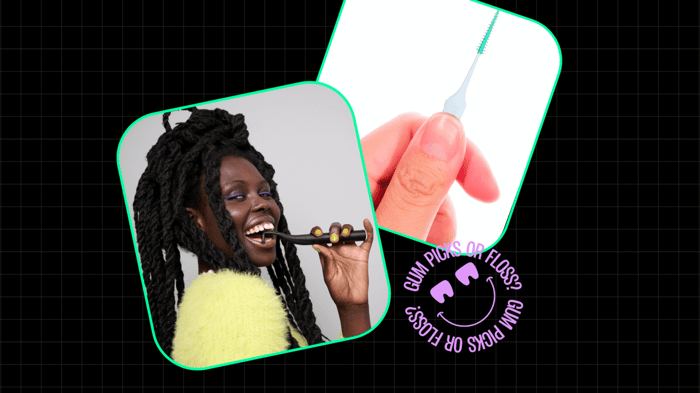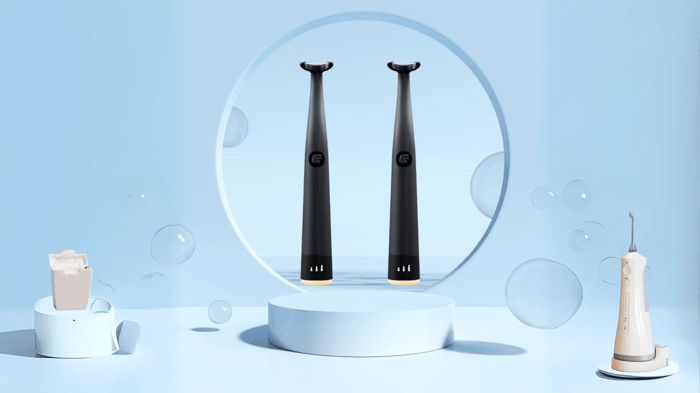Ever encountered that vexing post-floss feeling of itchy gums after flossing? You're certainly not alone. Many people experience this unusual reaction, transforming a healthy habit into a test of endurance. Although often this itching is just a minor discomfort, it might be signaling something more significant about your oral health. This blog post explores why your gums begin to feel like they're hosting a tiny, fiery cactus party after you floss and what you can do to ease the irritation. Dive in and learn more about the common causes and effective relief tips for this surprisingly persistent dental dilemma.
Itchy gums after flossing can be caused by various factors, including bacteria buildup, hormonal changes, allergies or sensitivities, and dry mouth. Itching gums are often associated with gingivitis and periodontal disease. Maintaining proper oral hygiene, including regular brushing, flossing (we might be biased, but obviously we’re a big fan of electric flossers, like Flaus, over here), and routine dental visits, can help alleviate itchy gums. If the problem persists or worsens, it is essential to consult with a dental professional for proper diagnosis and treatment.
What Triggers Itchy Gums After Flossing?
Many people experience itchy gums after flossing, and understanding the underlying triggers can help address this issue effectively. Two common factors that may contribute to itchy gums are Bacterial Buildup and Oral Hygiene, as well as Hormonal Changes and Allergies. Let's explore each of these factors in more detail.
Bacterial Buildup and Oral Hygiene
Imagine you're diligently flossing your teeth, ensuring a thorough clean, when suddenly you notice your gums starting to itch. It's possible that the cause lies in bacterial buildup and your oral hygiene. When plaque and bacteria accumulate along the gumline, they can irritate the gum tissue, causing itching or even inflammation.
Regular brushing and flossing are crucial for maintaining good oral hygiene, but it's essential to ensure proper technique. Inadequate flossing technique or neglecting to floss regularly can allow plaque and bacteria to build up, leading to gum irritation and itchiness. So while flossing is an excellent habit, it's essential to do it correctly and consistently.
Additionally, not paying attention to other aspects of oral hygiene, such as brushing with a soft-bristled toothbrush or using an antimicrobial mouthwash, can also contribute to itchy gums. Adopting a comprehensive oral care routine is key to preventing bacterial buildup and promoting overall dental health.
Let's take my friend Sarah as an example. She used to brush her teeth religiously but neglected flossing due to time constraints. Over time, she noticed her gums becoming red and itchy after every flossing session. Upon visiting her dentist, she discovered that inadequate flossing had allowed bacteria to accumulate along her gumline, causing irritation.
By understanding the role of bacterial buildup and the importance of oral hygiene in triggering itchy gums, we can take proactive measures to prevent this discomfort. However, hormonal changes and allergies can also play a significant role, which we'll explore in the next section.
-
According to the American Academy of Periodontology, up to 50% of Americans are estimated to have some form of periodontal disease, which may cause symptoms like itchy gums.
-
The Centers for Disease Control and Prevention reports that nearly half (46%) of all adults aged 30 years or older show signs of gum disease, a common reason behind itchy gums post flossing.
-
A study published in the Journal of Dental Research indicates that regular brushing and flossing can reduce gum bleeding (a potential sign of itchy gums) by up to 40%.
Hormonal Changes and Allergies
Itchy gums after flossing can sometimes be attributed to hormonal changes or allergies. During certain phases of life, such as pregnancy or menopause, fluctuations in hormone levels can lead to increased sensitivity in the gums. This heightened sensitivity can make the gums more prone to itching and irritation when flossing. Similarly, an allergic reaction to certain substances, such as the floss material or mouthwash used during oral hygiene routines, can also cause itching in the gums.
If you notice that your gums tend to itch more after flossing during specific periods or if you suspect an allergic reaction, it may be helpful to consult with your healthcare provider or dentist for further evaluation and guidance.
For example, if you have recently started using a new brand of floss and are experiencing itchy gums afterwards, it might be worth exploring whether you might have developed an allergic reaction to one of the components in that particular product.
It's essential to identify any potential triggers for your itchy gums and take appropriate action to alleviate the discomfort. This may involve adjusting your oral hygiene routine by switching to alternative products that are better suited for your specific needs.
-
Itchy gums after flossing can be caused by hormonal changes or allergies. Hormonal fluctuations during pregnancy or menopause can make the gums more sensitive and prone to itching. Allergic reactions to floss material or mouthwash can also lead to itchy gums. If you notice increased itching during specific periods or suspect an allergic reaction, consult with a healthcare provider or dentist for further evaluation. Consider switching to alternative oral hygiene products that are better suited to your needs if necessary.
Flossing Techniques and Its Impact
The way you perform your flossing routine can significantly impact the health of your gums and determine whether they itch afterwards. Using incorrect techniques or being too aggressive while flossing can lead to gum irritation and itchiness. It's crucial to ensure that you're employing proper flossing techniques to minimize any adverse effects.
Proper flossing technique involves gently maneuvering the dental floss between each tooth, forming a C-shape around the tooth surface, and sliding it up and down with care. Avoid snapping the floss into place forcefully or pressing too hard on the gum tissue, as these actions can cause injury and result in discomfort.
Think of flossing as a delicate dance, where precision and grace are key. By embracing a gentle and methodical technique, you can protect your gum health and reduce the chances of experiencing itching or irritation after flossing.
It's worth mentioning that if you've recently incorporated flossing into your oral hygiene routine after a period of neglect, your gums might initially feel itchy due to the removal of plaque and bacteria buildup. This should improve over time as your gums become healthier with regular flossing.
Now that we've explored the influence of hormonal changes, allergies, and flossing techniques on itchy gums, let's delve deeper into common missteps in flossing that can contribute to this discomfort.
Missteps in Flossing
Flossing plays a vital role in maintaining good oral hygiene and preventing various dental issues, including itchy gums. However, many people unknowingly make missteps while flossing that can exacerbate the problem. One common mistake is using too much force when sliding the floss between the teeth. This aggressive motion can lead to gum irritation and cause itching sensations. Another misstep is neglecting to reach below the gumline while flossing, as this area is prone to bacterial buildup and inflammation. By being mindful of these missteps, you can improve your flossing technique and reduce the likelihood of itchy gums.
Struggling to Add Flossing to Your Daily Routine? Try an Electric Flosser
If you’re struggling to make flossing a habit - here are some tips:
-
Try adding your new habit right before or right after a routine you always do. For example, if you always brush your teeth first thing in the morning, floss right before your brush. That way, brushing will act as a daily reminder to floss and you’re less likely to forget!
-
Get an accountability buddy! Having someone hold you accountable to your new goal is key to being successful - ask a friend or a family member to check in with you and help build this new habit
-
Try an electric flosser! An electric flosser, like Flaus, uses real dental floss and sonic vibrations to make flossing as easy, quick and comfortable as using your electric toothbrush. Electric flossers help you:
-
Save time — Floss in under 1 minute (5x faster than traditional floss).
-
Save money — $ today can save you $$$ in dental bills later.
-
Build healthier habits — 8 out of 10 customers report flossing MORE regularly.
-
Easy flossing — Comfortably reach your molars and glide between tight teeth.
-
Finger-free flossing — Save your mouth from germs and fingers from pain.
-
Massage your gums — Vibrations feel satisfying and leave teeth feeling cleaner.
-
Attractive look, smart design — A beautiful device you are proud to showcase.
Professional Dental Care For Itchy Gums
When it comes to addressing itchy gums, professional dental care plays a crucial role in providing long-term relief. Regular dental visits allow for early detection and treatment of underlying issues that contribute to gum itching. Gum disease, such as gingivitis or periodontal disease, is a common cause of itchy gums. By visiting your dentist regularly, you can receive a professional cleaning that helps remove plaque and tartar buildup, reducing the risk of gum inflammation and itchiness.
Routine dental cleanings also allow your dentist to monitor the health of your gums and provide personalized recommendations for maintaining good oral hygiene. They can offer guidance on proper brushing and flossing techniques, recommend suitable dental products, and provide advice on lifestyle changes that may alleviate your symptoms. Remember, comprehensive dental health encompasses not just teeth but also gums.
For instance, suppose you've been experiencing persistent gum itching after flossing. During a dental visit, your dentist may identify signs of gum disease or determine if there are other potential causes for your discomfort. They might recommend a treatment plan that could involve more frequent cleanings, antimicrobial mouth rinses, or specialized flossing techniques tailored to your needs.
By engaging with professional dental care, you can receive expert guidance to address the root cause of your itchy gums.
Now that we've seen the importance of professional dental care in managing itchy gums, let's explore some relief tips specifically targeted at alleviating discomfort after flossing.
Relief Tips for Itchy Gums After Flossing
It is not uncommon to experience itching or sensitivity in your gums after flossing due to various factors such as improper technique or underlying oral health issues. Here are some relief tips to help soothe itchy gums after flossing:
-
Proper Technique: Ensure that you are using the correct flossing technique. Gently slide the floss between your teeth, avoiding snapping or forcing it, which can irritate the gums. Form a C-shape around each tooth and carefully move the floss up and down to remove plaque and debris.
-
Soft Bristled Toothbrush: Consider using a toothbrush with soft bristles, which is gentle on your gums. Harder bristles may further aggravate itchiness and discomfort.
-
Rinse with Saltwater: After flossing, rinse your mouth with a warm saltwater solution (1/2 teaspoon of salt dissolved in 8 ounces of water). This can help reduce inflammation and soothe any irritation in the gums.
-
Regular Dental Cleanings: As mentioned earlier, routine dental cleanings are an effective way to prevent and manage itchy gums. By removing plaque buildup, professional cleanings promote healthier gums and reduce itching.
Remember, if you experience persistent or severe gum itching after flossing, it is advisable to consult your dentist for a thorough evaluation and personalized recommendations.








